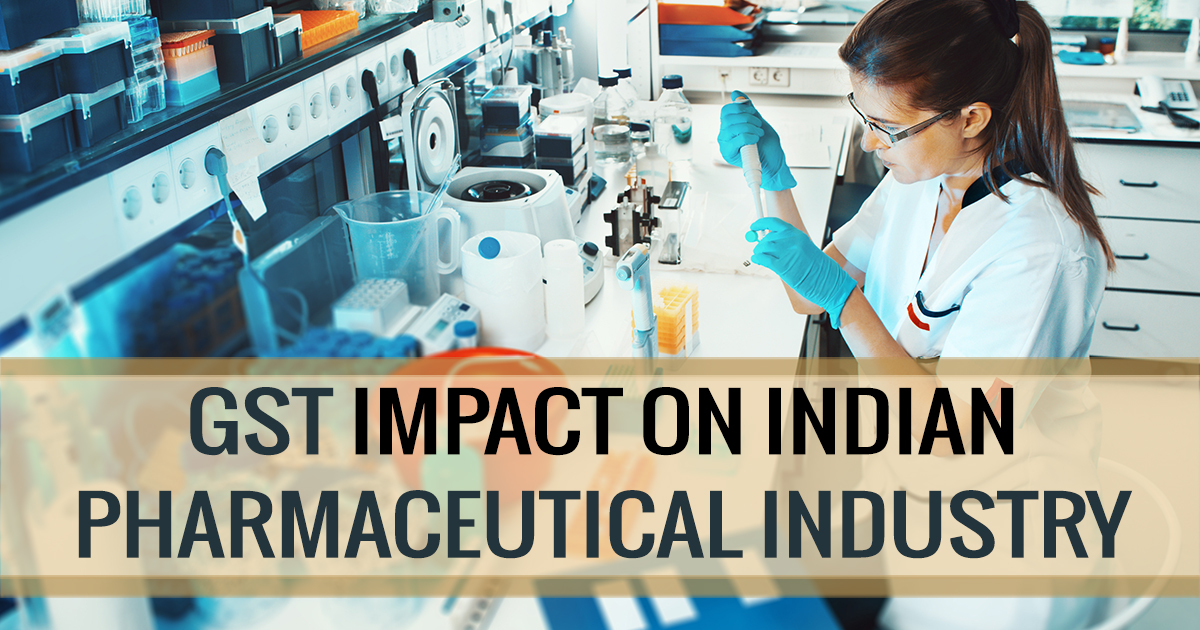
Currently, Indian drugs are exported to more than 200 countries in the world. India is the largest provider of Generic drug medicines globally and expected to expand further experiencing a boom in the medical industry which will help in generating additional returns for the Industry.
Read Also: Medical Devices Should be Set Free from GST: Sanjay Bhutani
The Indian Pharmaceutical Industry has been extremely growing in recent years, and the Ministry of Health targets the development of new technologies by the end of this year to treat diseases, such as cancer and tuberculosis. To attract more foreign direct investment (FDI), the Government raised the FDI cap for brownfield Pharmaceutical investments to 74% in June and above 74% with the government approval and the FDI cap for Greenfield Pharmaceutical investments was raised to 100%.
What is GST?
GST stands for Goods and Service Tax is the biggest Tax reform in the era of the Indian Indirect Taxation industry which will subsume various taxes like VAT, CST, Service tax, excise duty, additional excise duty, Luxury Tax, Entertainment Tax and many more. GST is the single taxation system in India which will help in eliminating time, cost and effort.
Now let us understand the impact of GST on the Pharmaceutical industry. An enactment of the most awaited Goods and Services Tax (GST) Bill caught the attention of all industries in India. It has benefited most of the sectors and made taxation easier as compared to the current taxation system.
What will be Its Effects on India’s Pharmaceutical Industry?
Goods and Service Tax is having a constructive impact on the Indian Pharmaceutical Industries as it has increased the manufacturing cost. Most drugs mentioned in the 5% tax bracket under GST were previously covered in the 4% tax bracket under VAT. It will eliminate the cascading effect of multiple taxes applied on One Product. Under GST, Ayurvedic medicines could get costlier as they would be taxed at the rate of 12% which was earlier covered by the 4% tax bracket under the VAT regime. Because of this hike in the tax rates, MRP has to be revised to absorb overall effect.
Besides negative impacts, there are some negative positive impacts also. Traditional Cost and Distribution Model will get replaced by supply chain efficiencies due to the discontinuance of the Central Sales tax and interstate transactions between two dealers will become tax neutral.
Pharmaceutical companies will experience improved operational efficiency and improved compliance. It benefited the warehousing strategy. As of now, companies kept their warehouses in different States to avoid the Central Sales tax of different States. Now, they can consolidate warehouses at strategic locations as they will only have to pay Integrated GST (IGST) on inter-state supplies of Goods and Services. GST surely benefited the pharma sector by way of reduced complexities and the consolidation of multiple taxes into a single rate.
Now under GST, various distribution channels are required to obtain registration and file returns. Earlier they were not required to obtain registration since they were not involved in the payment of taxes and filing of returns. This has increased compliance and curb practices of non-issuance of invoices.
India’s Pharmaceutical Industry Restores From GST Impacts
The Pharmaceutical Industry of India now has been restored from GST impacts with a correction in the drug inventory of stockists. The validation is done based on a small increase seen in domestic market sales of major pharmaceutical companies which are Torrent Pharmaceuticals Limited, Alembic Pharmaceuticals Limited, and Cadila Healthcare Limited.
Viranchi Shah, the chairman of the Gujarat State Board-Indian Drug Manufacturers Association (IDMA) said, “The Indian pharmaceutical market’s growth had eased to around 3%, which has again picked up to 9% “